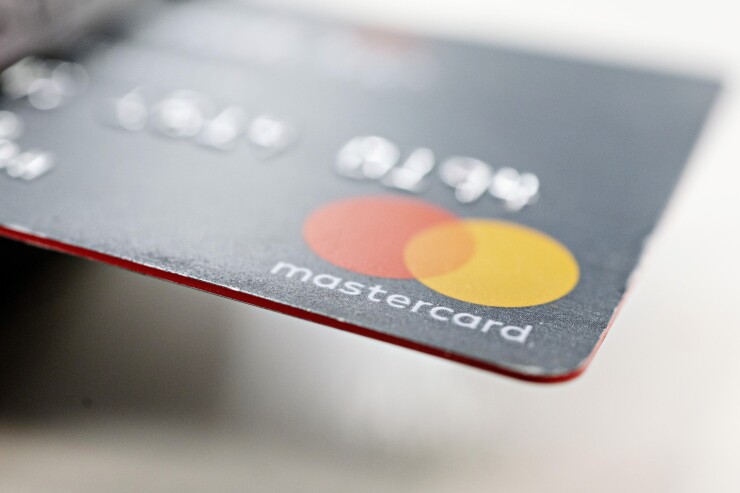Mastercard is cracking down on merchants who bill consumers for unwanted subscriptions when a free trial offer ends — but by limiting the rule to physical goods, it's leaving a lot of potential consumer goodwill on the table.
Ultimately, Mastercard may have no choice but to make some sort of guarantee on digital subscriptions too, given the good publicity it received before most news outlets realized the new policy is for physical goods only. Consumers were likely eager for some digital-subscription relief after Netflix announced
New Mastercard rules going into effect in April will require merchants to get a cardholder’s specific approval when a free trial ends, which is before regular billing begins, the network announced in a

Subscription billing, when it kicks in after a free trial ends, is a practice that’s already in the crosshairs of regulators and consumer advocacy groups. The Federal Trade Commission has flagged rising consumer complaints around unwanted charges from free trial offers, according to a
Separately, companies such as Apple have had to
According to Mastercard, the digital subscription market has policed itself better than the market for physical goods.
"Currently we are focused on an area that we have noticed to be historically problematic," Chaiti Sen, vice president of communication at Mastercard, said in an emailed statement. "Online subscriptions traditionally are quite explicit and ask people to opt in. We will continue to monitor this space and take timely action if required."
Mastercard's move also could bring relief to banks that are caught in the middle of chargebacks over disputed payments for subscriptions consumers forgot or were unable to cancel.
Though Mastercard's new policy stops short of requiring all merchants to confirm details of payments after a free trial expires, the first card network to fully codify best billing practices in the digital arena could score a branding victory, according to Richard Crone, a principal with Crone Consulting LLC.
"Recurring subscriptions have been an ongoing problem for consumers, especially in cases where merchants really have a bait-and-switch kind of business model that makes it difficult for people to reverse their commitment after a free trial," Crone said.
Clearer merchant communications around recurring payments could also help stem fraud, which is rapidly expanding in digital goods, he pointed out.
"It's ironic that Mastercard would not first release this capability of confirming recurring subscription payments where it's needed most — for online transactions, especially e-commerce subscriptions," Crone said.
Under its new rules, Mastercard will require merchants to send a receipt for every subscription payment for physical goods through the same channels they sent the free-trial offer, with cancellation instructions. In addition, merchants must include the phone number of the store or the merchant website where the cardholder signed up for the free trial or made the purchase.
Mastercard did not outline penalties for merchants that don't comply with its rules, which take effect April 12, 2019.
Mastercard's first step is to work with the acquirer to bring their merchant into compliance, said a Mastercard spokesperson in an email.
Discover will continue to rely on existing rules for handling merchant disputes around subscription payments, a spokesperson the Riverwoods, Ill.-based network said in an email.
American Express and Visa were not available for comment by deadline.





